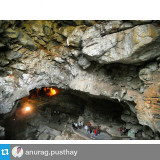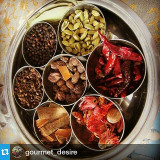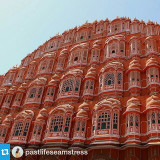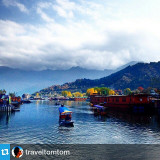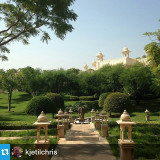Random image from our India photo collection
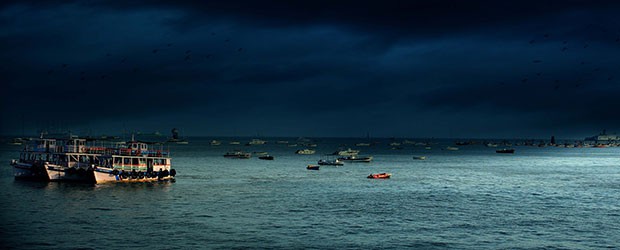
Punjab
Fairs And Festivals
The festivals in Punjab have always been celebrated with much enthusiasm and display. For the masses these festivals are popular occasions for social interaction and enjoyment.
Punjab is predominantly an agricultural state. The most significant festival of Punjab is Baisakhi, which marks the arrival of the harvesting season. For the Sikhs, Baisakhi has a special significance because on this day in 1699, their tenth guru, Guru Gobind Singh organized the Order of the Khalsa.
The Gurpurab festival is celebrated by the Sikhs to express their reverence for their gurus. Two major Gurpurabs are celebrated during the year. The first in the month of Kartik (Oct-Nov) to celebrate the teachings of the founder of Sikhism, Guru Nanak, and the second in the month of Pausa (December-January) to celebrate the birth anniversary of Guru Govind Singh. On all Gurpurabs, non-stop recital of the granth sahib and religious discourses are held. Langars (free meals) are served to all without distinction of caste or creed.
A day after Holi, the Sikh community in Punjab observes Holla Mohalla with thousands of devoted Sikhs gathering at Anandpur Sahib-where Guru Gobind Singh was baptized-to participate in the grand fair of Holla Mohalla. The whole place has a festive look and, processions are taken out and the people participate in the festivities with gaiety and zeal.
Tika is celebrated in the month of Kartik (Oct-Nov.) one day after Diwali. Women put a tika of saffron and, rice grains on the foreheads of their brothers, to protect them from evil.
Like most other festivals of Punjab, Lohri too is a festival related to the seasons. Celebrated in the month of Pausa (December-January), it marks the end of the winter season. A huge bonfire is made in every house and the fire god is worshipped.
Teej heralds the onset of Sawan (monsoon), which is essential for the agricultural prosperity of the state. Dressed in all their finery, with mehndi on their hands, the womenfolk come together to welcome the rains and pray for the long lives of their husbands.
Go back
Punjab is predominantly an agricultural state. The most significant festival of Punjab is Baisakhi, which marks the arrival of the harvesting season. For the Sikhs, Baisakhi has a special significance because on this day in 1699, their tenth guru, Guru Gobind Singh organized the Order of the Khalsa.
The Gurpurab festival is celebrated by the Sikhs to express their reverence for their gurus. Two major Gurpurabs are celebrated during the year. The first in the month of Kartik (Oct-Nov) to celebrate the teachings of the founder of Sikhism, Guru Nanak, and the second in the month of Pausa (December-January) to celebrate the birth anniversary of Guru Govind Singh. On all Gurpurabs, non-stop recital of the granth sahib and religious discourses are held. Langars (free meals) are served to all without distinction of caste or creed.
A day after Holi, the Sikh community in Punjab observes Holla Mohalla with thousands of devoted Sikhs gathering at Anandpur Sahib-where Guru Gobind Singh was baptized-to participate in the grand fair of Holla Mohalla. The whole place has a festive look and, processions are taken out and the people participate in the festivities with gaiety and zeal.
Tika is celebrated in the month of Kartik (Oct-Nov.) one day after Diwali. Women put a tika of saffron and, rice grains on the foreheads of their brothers, to protect them from evil.
Like most other festivals of Punjab, Lohri too is a festival related to the seasons. Celebrated in the month of Pausa (December-January), it marks the end of the winter season. A huge bonfire is made in every house and the fire god is worshipped.
Teej heralds the onset of Sawan (monsoon), which is essential for the agricultural prosperity of the state. Dressed in all their finery, with mehndi on their hands, the womenfolk come together to welcome the rains and pray for the long lives of their husbands.
Go back




